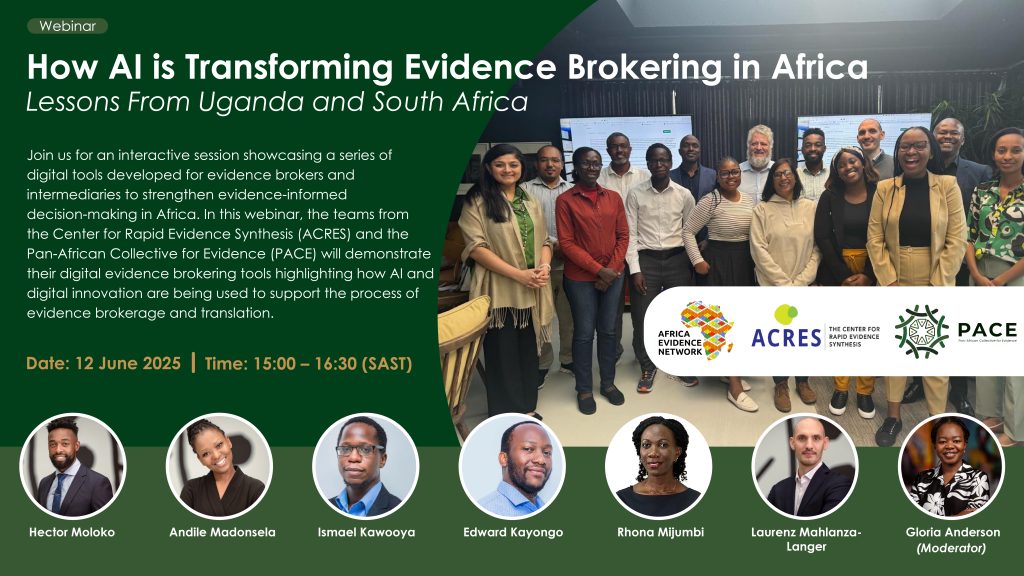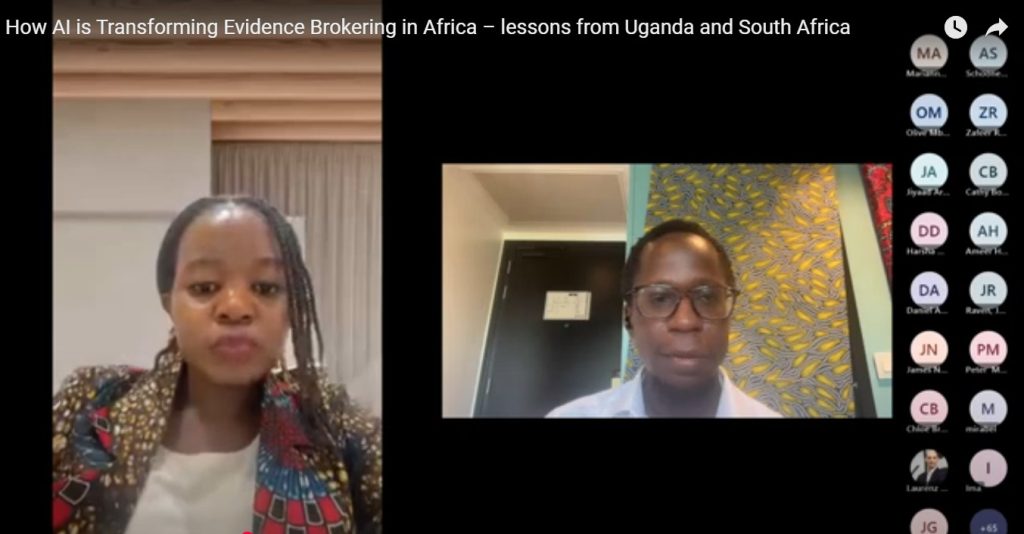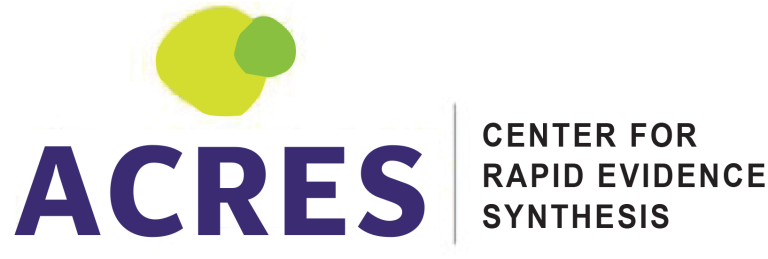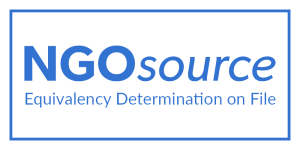
On June 12, 2025, the Center for Rapid Evidence Synthesis (ACRES) took part in a webinar titled “How AI is Transforming Evidence Brokering in Africa: Lessons from Uganda and South Africa.”
Moderated by Ms. Gloria Anderson, the event brought together experts from ACRES and the Pan-African Collective for Evidence (PACE) in South Africa, sparking discussions on the role of artificial intelligence in shaping Africa’s evidence-informed decision-making (EIDM) landscape.
In her remarks, Dr. Mijumbi, Executive Director of ACRES, emphasized AI’s transformative potential in addressing Africa’s unique challenges.
“Newer technologies like AI, combined with tools in evidence-informed decision-making, are important in Africa because of their potential to address the continent’s unique challenges and accelerate sustainable practices and certainly development,” she stated.
The Center has been at the forefront of developing AI-driven tools to streamline Evidence-Informed Decision Making (EIDM). With support from the Gates Foundation under the Digital Gender-Inclusive Tools for Evidence Use (DG-Tools) project, and in collaboration with PACE and the Ethiopian Public Health Institute (EPHI), ACRES is developing innovations that harness AI to enhance policymaking and research.
Bridging data gaps and enhancing policy predictions
Dr. Mijumbi highlighted AI’s capacity to process vast and diverse datasets—going beyond traditional peer-reviewed sources—to support more nuanced, evidence-driven decisions.
“There was a need to see how AI can enhance EIDM by processing large datasets, working with different sources of information and evidence—not just the formal, indexed, and peer-reviewed evidence—and then automating tasks to align with EIDM’s goal of ensuring decisions are evidence-informed,” she explained.
She also pointed to AI’s role in climate resilience, where predictive analytics can optimize weather forecasting and agricultural practices, offering tangible benefits for African communities.
While championing AI’s potential, Dr. Mijumbi underscored the importance of responsible innovation.
“We have all used AI in some way now and agree that it has immense potential to enhance our work. But we also have to realize how, in many ways, this needs to be done in a responsible way. The teams at ACRES and PACE, alongside colleagues in Ethiopia at the EPHI, have been experimenting and developing some tools in this regard—being innovative and relevant but also staying aware of the critical ethical and accountability issues,” she added.
Showcasing digital evidence-brokering tools
During the webinar, ACRES and PACE demonstrated their digital evidence-brokering tools, illustrating how AI is revolutionizing evidence synthesis and translation.

Dr. Ismael Kawooya, Head of Office at ACRES, explained the approach:
“We had to first conceptualize what we are talking about when we say evidence brokering and where digital tools come in. Our conceptualization meant that whatever we’re doing to ensure evidence is accessed—and that it’s the best quality and used effectively in policy processes—must ultimately benefit the policymaker.”
Edward Kayongo, Technical Coordinator at ACRES, showcased an AI-based data extraction tool designed to improve the speed and accuracy of evidence synthesis.
“This tool enhances efficiency in data extraction, both in terms of quantity and quality, while minimizing human error,” he noted.
Additionally, the ACRES team presented Shiny Apps (built using the R language model), which visualize the use of solar energy in Ugandan health centers—a prime example of how digital tools can translate complex data into actionable insights.
Speakers from PACE were led by Mr. Laurenz Mahlanza – Langer, Executive Director, and included Mr Hector Moloko and Andile Madonsela (She/Her).
For those who missed the live session, the full webinar recording can be accessed here.


